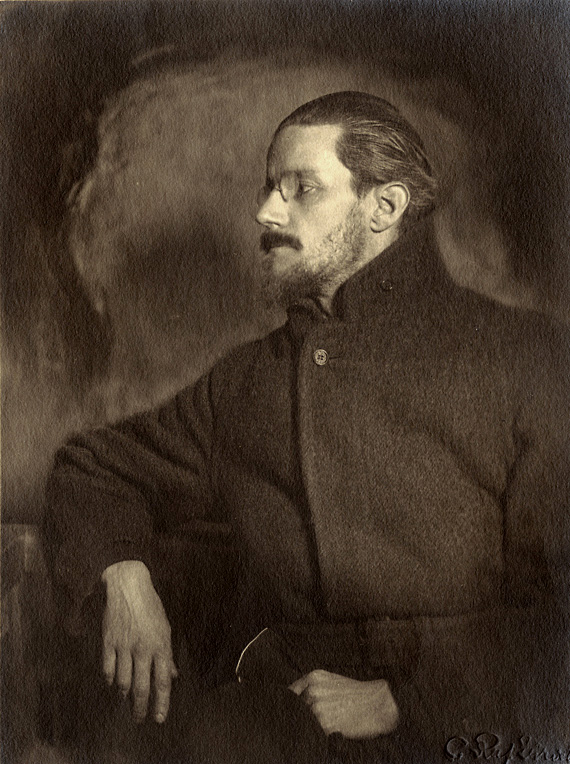Works
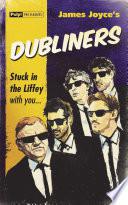
Dubliners
James Joyce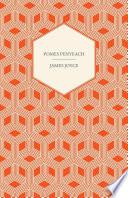
Pomes Penyeach
James Joyce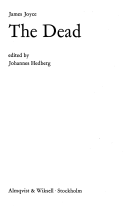
The Dead
James Joyce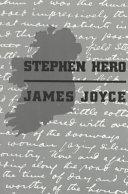
Stephen Hero
James Joyce
Giacomo Joyce
James JoyceChamber Music
James JoyceFamous James Joyce Quotes
James Joyce Quotes about life
Source: A Portrait of the Artist as a Young Man
Source: A Portrait of the Artist as a Young Man
Source: A Portrait of the Artist as a Young Man
James Joyce Quotes about heart
Source: A Portrait of the Artist as a Young Man
James Joyce: Trending quotes
“He tried to weigh his soul to see if it was a poet's soul.”
"A Little Cloud"
Dubliners (1914)
Context: He tried to weigh his soul to see if it was a poet's soul. Melancholy was the dominant note of his temperament, he thought, but it was a melancholy tempered by recurrences of faith and resignation and simple joy. If he could give expression to it in a book of poems perhaps men would listen.
“In the name of the former and of the latter and of their holocaust. Allmen.”
419.9-10
Finnegans Wake (1939)
James Joyce Quotes
“History, Stephen said, is a nightmare from which I am trying to awake.”
Source: Ulysses (1922), Ch. 2: Nestor
Stephen Hero (1944)
Context: This triviality made him think of collecting many such moments together in a book of epiphanies. By an epiphany he meant a sudden spiritual manifestation, whether in the vulgarity of speech or of gesture or in a memorable phase of the mind itself. He believed that it was for the man of letters to record these epiphanies with extreme care, seeing that they themselves are the most delicate and evanescent of moments. He told Cranly that the clock of the Ballast Office was capable of an epiphany. Cranly questioned the inscrutable dial of the Ballast Office with his no less inscrutable countenance:
—Yes, said Stephen. I will pass it time after time, allude to it, refer to it, catch a glimpse of it. It is only an item in the catalogue of Dublin's street furniture. Then all at once I see it and I know at once what it is: epiphany.
"James Clarence Mangan" (1902) http://andromeda.rutgers.edu/~ehrlich/382/MANGAN1, a lecture on Mangan delivered at the Literary and Historical Society, University College, Dublin (1 February 1902) and printed in the college magazine St. Stephen's
Context: Poetry, even when apparently most fantastic, is always a revolt against artifice, a revolt, in a sense, against actuality. It speaks of what seems fantastic and unreal to those who have lost the simple intuitions which are the test of reality; and, as it is often found at war with its age, so it makes no account of history, which is fabled by the daughters of memory.
“A Place for Everything and Everything in its Place, Is the Pen Mightier than the Sword?”
Page 306
Finnegans Wake (1939)
Context: A Place for Everything and Everything in its Place, Is the Pen Mightier than the Sword? A Successful Career in the Civil Service.
“Every night as I gazed up at the window I said to myself softly the word paralysis.”
"The Sisters"
Dubliners (1914)
Context: Every night as I gazed up at the window I said to myself softly the word paralysis. It had always sounded strangely in my ears, like the word gnomon in the Euclid and the word simony in the Catechism. But now it sounded to me like the name of some maleficent and sinful being. It filled me with fear, and yet I longed to be nearer to it and to look upon its deadly work.
“It soared, a bird, it held its flight, a swift pure cry, soar silver orb it leaped serene,”
Ulysses (1922)
Context: It soared, a bird, it held its flight, a swift pure cry, soar silver orb it leaped serene, speeding, sustained, to come, don't spin it out too long long breath he breath long life, soaring high, high resplendent, aflame, crowned, high in the effulgence symbolistic, high, of the ethereal bosom, high, of the high vast irradiation everywhere all soaring all around about the all, the endlessnessnessness... (271)
625.27 - 625.29
Finnegans Wake (1939)
“The apprehensive faculty must be scrutinised in action.”
Stephen Hero (1944)
Context: Imagine my glimpses at that clock as the gropings of a spiritual eye which seeks to adjust its vision to an exact focus. The moment the focus is reached the object is epiphanised. It is just in this epiphany that I find the third, the supreme quality of beauty. … No esthetic theory, pursued Stephen relentlessly, is of any value which investigates with the aid of the lantern of tradition. What we symbolise in black the Chinaman may symbolise in yellow: each has his own tradition. Greek beauty laughs at Coptic beauty and the American Indian derides them both. It is almost impossible to reconcile all tradition whereas it is by no means impossible to find the justification of every form of beauty which has ever been adored on the earth by an examination into the mechanism of esthetic apprehension whether it be dressed in red, white, yellow or black. We have no reason for thinking that the Chinaman has a different system of digestion from that which we have though our diets are quite dissimilar. The apprehensive faculty must be scrutinised in action.
Stephen Hero (1944)
Context: Imagine my glimpses at that clock as the gropings of a spiritual eye which seeks to adjust its vision to an exact focus. The moment the focus is reached the object is epiphanised. It is just in this epiphany that I find the third, the supreme quality of beauty. … No esthetic theory, pursued Stephen relentlessly, is of any value which investigates with the aid of the lantern of tradition. What we symbolise in black the Chinaman may symbolise in yellow: each has his own tradition. Greek beauty laughs at Coptic beauty and the American Indian derides them both. It is almost impossible to reconcile all tradition whereas it is by no means impossible to find the justification of every form of beauty which has ever been adored on the earth by an examination into the mechanism of esthetic apprehension whether it be dressed in red, white, yellow or black. We have no reason for thinking that the Chinaman has a different system of digestion from that which we have though our diets are quite dissimilar. The apprehensive faculty must be scrutinised in action.
“Then all at once I see it and I know at once what it is: epiphany.”
Stephen Hero (1944)
Context: This triviality made him think of collecting many such moments together in a book of epiphanies. By an epiphany he meant a sudden spiritual manifestation, whether in the vulgarity of speech or of gesture or in a memorable phase of the mind itself. He believed that it was for the man of letters to record these epiphanies with extreme care, seeing that they themselves are the most delicate and evanescent of moments. He told Cranly that the clock of the Ballast Office was capable of an epiphany. Cranly questioned the inscrutable dial of the Ballast Office with his no less inscrutable countenance:
—Yes, said Stephen. I will pass it time after time, allude to it, refer to it, catch a glimpse of it. It is only an item in the catalogue of Dublin's street furniture. Then all at once I see it and I know at once what it is: epiphany.
“End here. Us then. Finn, again! Take.”
Finnegans Wake (1939)
Context: End here. Us then. Finn, again! Take. Bussoftlhee, mememormee! Till thousandsthee. Lps. The keys to. Given! A way a lone a last a loved a long the / riverrun, past Eve and Adam's, from swerve of shore to bend of bay, brings us by a commodius vicus of recirculation back to Howth Castle and Environs. (628.13 to 3.3)
"A Painful Case"
Dubliners (1914)
Context: But there was no harshness in the eyes which, looking at the world from under their tawny eyebrows, gave the impression of a man ever alert to greet a redeeming instinct in others but often disappointed. He lived at a little distance from his body, regarding his own acts with doubtful side-glances. He had an odd autobiographical habit which led him to compose in his mind from time to time a short sentence about himself containing a subject in the third person and a predicate in the past tense.
“He wanted to cry quietly but not for himself: for the words, so beautiful and sad, like music.”
Source: A Portrait of the Artist as a Young Man
“They lived and laughed and loved and left.”
Source: Finnegans Wake
“But my body was like a harp and her words and gestures were like fingers running upon the wires.”
"Araby"
Dubliners (1914)
“and yet her name was like a summons to all my foolish blood.”
Source: Dubliners
Source: A Portrait of the Artist as a Young Man
Source: A Portrait of the Artist as a Young Man
Letter to Fanny Guillermet (Zurich, 5 September 1918)
“Moments of their secret life together burst like stars upon his memory.”
Source: The Dead
“The heaventree of stars hung with humid nightblue fruit.”
683
Source: Ulysses (1922)
“You can still die when the sun is shining.”
Source: A Portrait of the Artist as a Young Man
Source: A Portrait of the Artist as a Young Man
“To learn one must be humble. But life is the great teacher.”
Source: Ulysses
“Have read little and understood less.”
Source: A Portrait of the Artist as a Young Man
Source: A Portrait of the Artist as a Young Man
